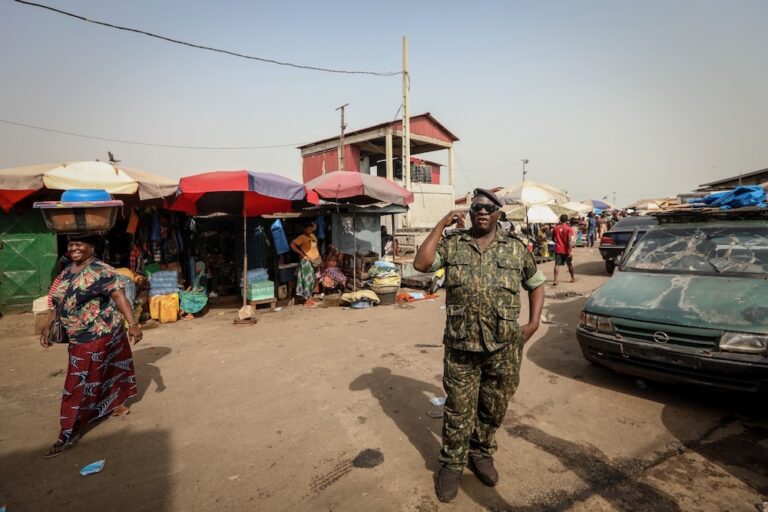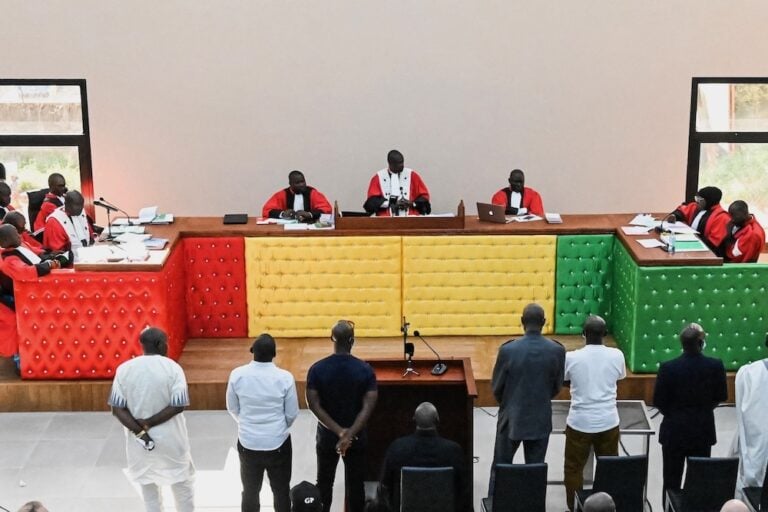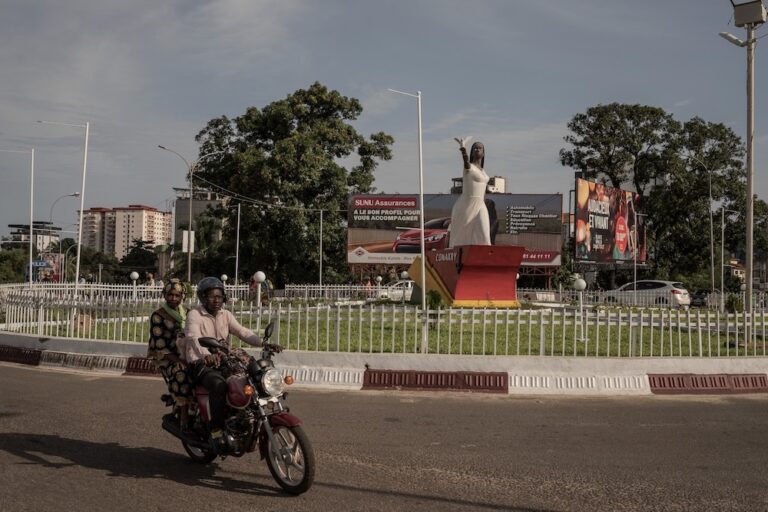RSF learned from a source within the military government that the Lynx-Lance press group and some of its journalists could be the target of a military operation.
(RSF/IFEX) – Reporters Without Borders learned from a source within the military government in Conakry that the Lynx-Lance press group and some of its journalists could be the target of an “operation.” Consisting of two weeklies, “La Lance” and the satirical “Le Lynx”, with a combined print run that is the largest in Guinea, the group is renowned for being independent and outspoken.
“We are taking this information and the threat it entails very seriously,” Reporters Without Borders said. “With a climate of fear still prevailing within the Guinean media, we will hold the junta responsible for any use of violence against the Lynx-Lance press group and its employees. We also urge Burkina Faso President Blaise Compaoré, who is mediating in the Guinean crisis, to ask the junta to respect media freedom and the expression of diverse views.”
Reporters Without Borders was told that the operation would consist of a night-time raid on the press group’s headquarters and “ambushes” against some of its journalists. These attacks would be blamed on “uncontrolled elements.” It appears that the military have decided to “silence” the Lynx-Lance group because of its perceived support for the opposition.
Souleymane Diallo, the head of the Lynx-Lance group, told Reporters Without Borders: “We must not let ourselves be discouraged by this information. We will continue to do our job with objectivity, as we always do.”
In a separate case, Reporters Without Borders deplores the fact that Talibé Barry, the editor of the L’Indépendant press group, was summoned for questioning at the headquarters of the national gendarmerie on 11 November in connection with an article about the disappearance of a soldier.
Guinea’s journalists meanwhile regard Cheikh Fantamady Condé’s recent appointment as information and culture minister as a backward step for press freedom. Condé believes in media uniformity and is keeping Radio Télévision Guinéenne (RTG) and the other state media under close control, ensuring that their coverage of political developments is muted.
Ever since the military dispersed an opposition protest in a Conakry stadium with great loss of life on 28 September, many Guinean journalists have been living in fear, in part because of reliable reports that a blacklist of journalists has been compiled by staunch supporters of Guinea’s military leader, Capt. Dadis Camara, for an operation called “Dadis or death.”
In the immediate aftermath of the 28 September massacre, the junta organised a manhunt for the “traitors” within the media who had “sold out Guinea” to the international community by covering the massacre. Several journalists who work for international media or online media have fled the country because of death threats. Some, who Reporters Without Borders prefers not to name, are seeking asylum abroad.


